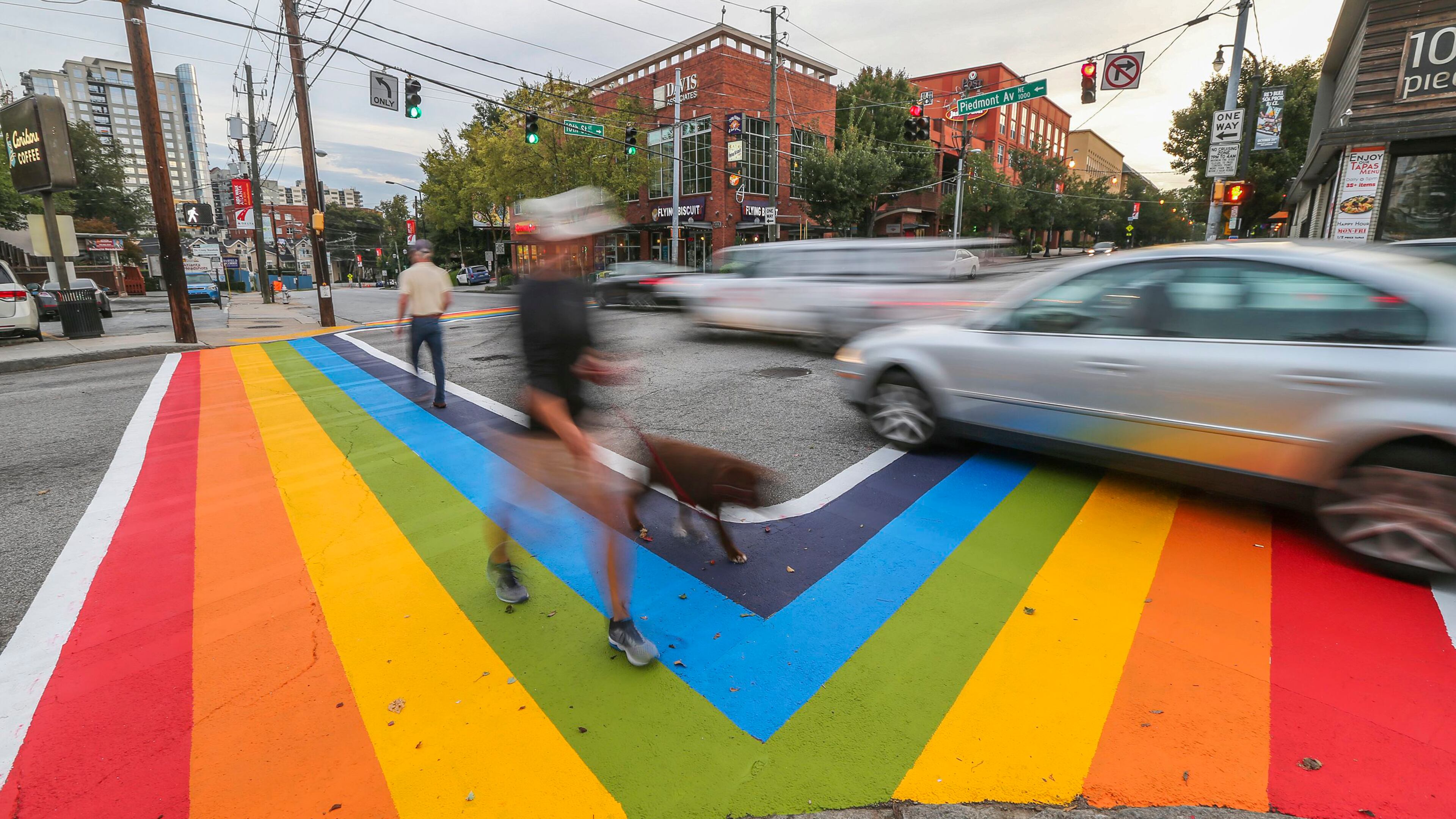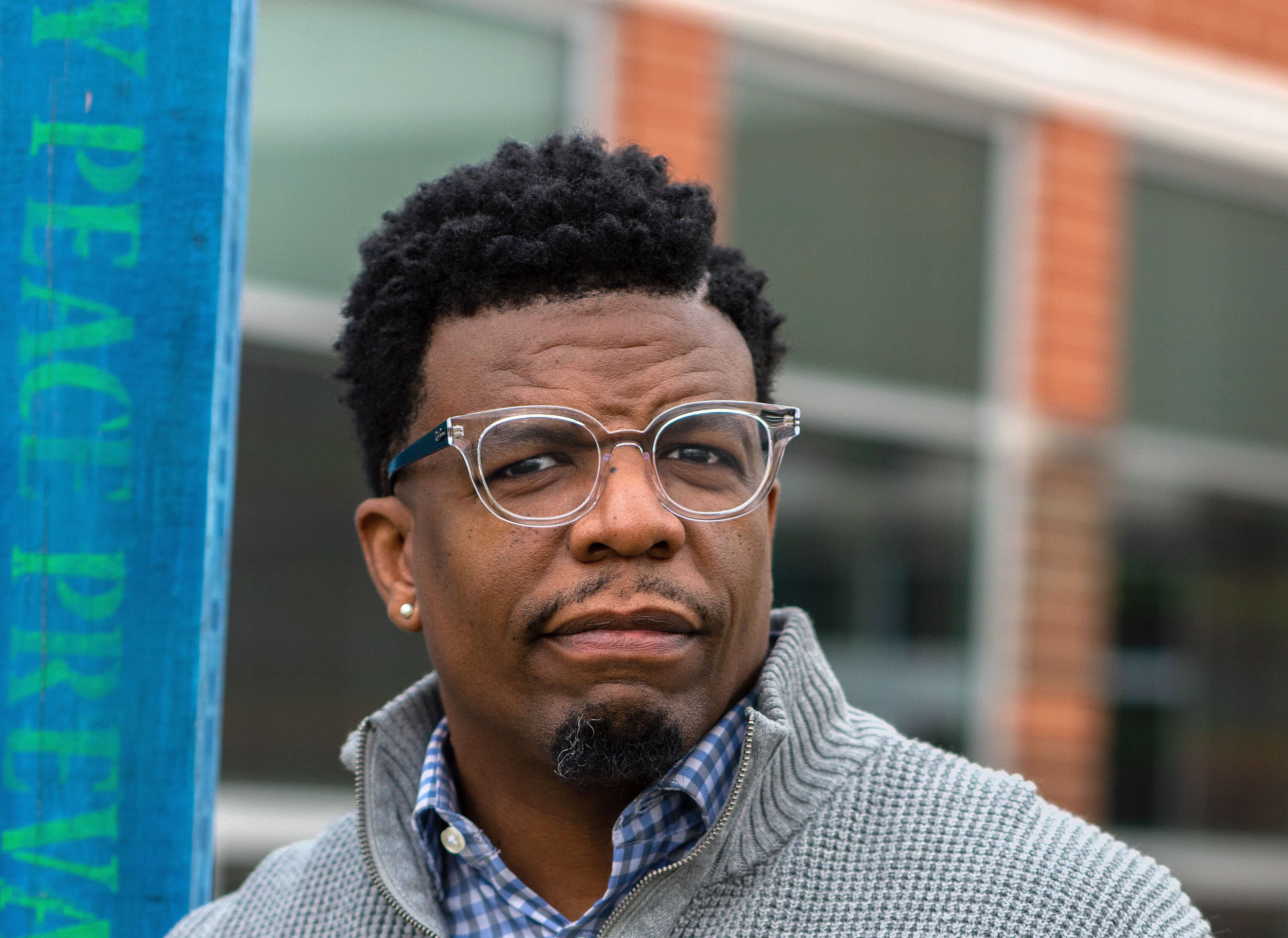Opinion: For true equality, stigmatization of LGBTQ+ Southerners must end

LGBTQ+ southerners are frequently subjected to agonizing stigmatization - slurs and jokes, poor service in restaurants and hotels and made to feel unwelcome at doctors’ offices or places of worship because of their identity. It’s part of being LGBTQ+ in the South. It fuels discrimination that impedes a fulfilling life equal to straight neighbors and hinders access to quality health care, meaningful careers and education.
A full 100 percent of respondents to the LGBTQ Institute’s and Emory University Goizueta Business School’s recently released Southern Survey said they had been stigmatized. 100 percent. Yet each of the 1,326 participants has a story beyond statistics, one of resilience despite pervasive discrimination in education, health care and the workplace.
The freedom to thrive, not just survive, for LGBTQ+ Southerners like me is not a given. I was a preacher’s kid raised in Little Rock and Taylor, Arkansas. As a young Black man, I armed myself with masculinity and religiosity to shield my truth. And, like for so many LGBTQ+ folks, it didn’t work. Forty-five years after my first thoughts that I might be different, I still keep waking up queer.

Our survey suggests this is more common than not. Just over 22 percent of respondents reported being younger than 10 years old when they first felt that they were LGBTQ+, with a majority (58.1%) feeling this way by age 14.
So, with more LGBTQ+ folks calling the South home than any other U.S. region, why does stigmatization continue to be part of Southern life?
Over the past decade, we’ve seen advances in marriage equality and more affirming workplaces. Recently however, we’ve also seen a rollback, even a backlash, to that progress, spurred by state legislators introducing and enacting a record number of anti-LGBTQ+ bills – nearly 500 so far this year in the U.S. and at least five bills in Georgia, including the recently passed SB140 that bans most treatments that would help transgender kids affirm their identity.
LGBTQ+ Southerners are reeling, especially young people who are more vulnerable to attacks and depression.
For transgender and nonbinary young people, and especially those who are people of color, the effects are more stark. The LGBTQ Institute’s survey reveals that a quarter of transgender respondents have skipped school to avoid discrimination, and over half of respondents have experienced harassment or bullying for being LGBTQ+.
Children who are confident in their sexual orientation or gender identity need affirming positive examples of the lives they can lead in the future. State and local censorship of LGBTQ+ stories or history in books and curriculum hinders the social and emotional well-being of LGBTQ+ youth. The risk of suicide and depression are rising among LGBTQ+ youth. As an educator and as a teen suicide attempt survivor in 1988, I find it tragic that young people still feel they have to choose between suicide and living as their authentic selves in 2023.
Research by GLSEN has shown that having LGBTQ+ teachers can benefit LGBTQ+ students’ school experience. However, as the Southern Survey details, many people fear losing their jobs due to their sexual orientation or gender identity, despite being otherwise applauded for their excellence.
Despite these challenges, I have seen the vital impact that LGBTQ+ educators have on their students. As a popular teacher and basketball coach, I experienced how just being in the school building made a difference for LGBTQ+ students who lacked support at home or in their communities.
Shortly after marriage equality passed in 2016, a former student invited me to his wedding. He said that my presence at school and the admiration and respect that his peers had for me helped him cope through family prejudice and depression. These moments drive me to continue working with students to build their confidence and serve as a role model as a successful LGBTQ+ adult.
Now, imagine a future where legislation further prevents LGBTQ+ teachers from being able to support their students, perpetuating harm and discrimination which negatively impact adulthood.
And yet, our stories are not just about challenges and obstacles, but also our empowerment. Respondents confidently exert economic power -- 93.4 percent of respondents refused to purchase products from companies that are unsupportive of LGBTQ+ rights. More than 56 percent of the respondents view their workplace as very accepting for LGBTQ+ employees and 71 percent of the respondents answered having more than one individual that they consider an ally at work.
The Southern Survey asks us to consider how to ensure that LGBTQ rights are human rights. I invite you to read it and consider that alongside my story there are 1,325 other humans sharing their truths who simply want better than to just survive, but to thrive uncompromisingly like anyone else.
Tim’m West is executive director of the LGBTQ Institute at the National Center for Civil and Human Rights in Atlanta. He is an educator and multidiscipline performance artist, author, hip hop recording artist, poet, activist and youth advocate.


